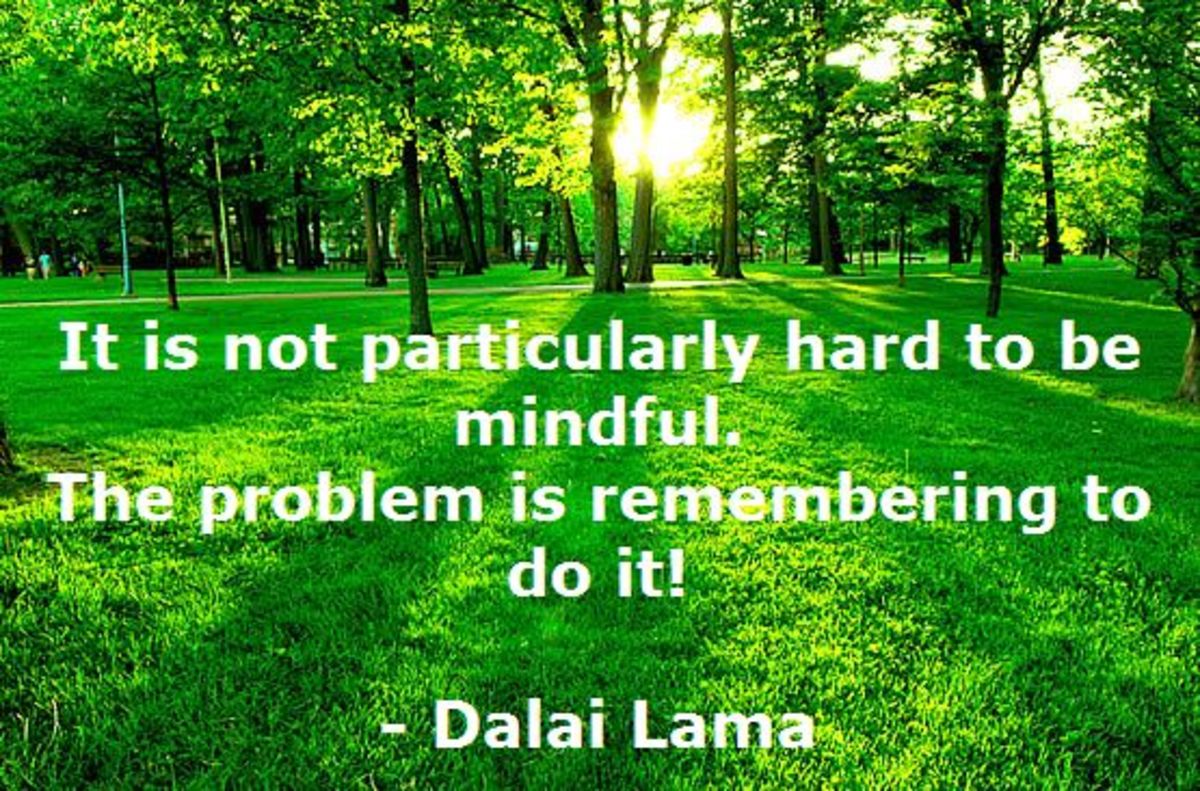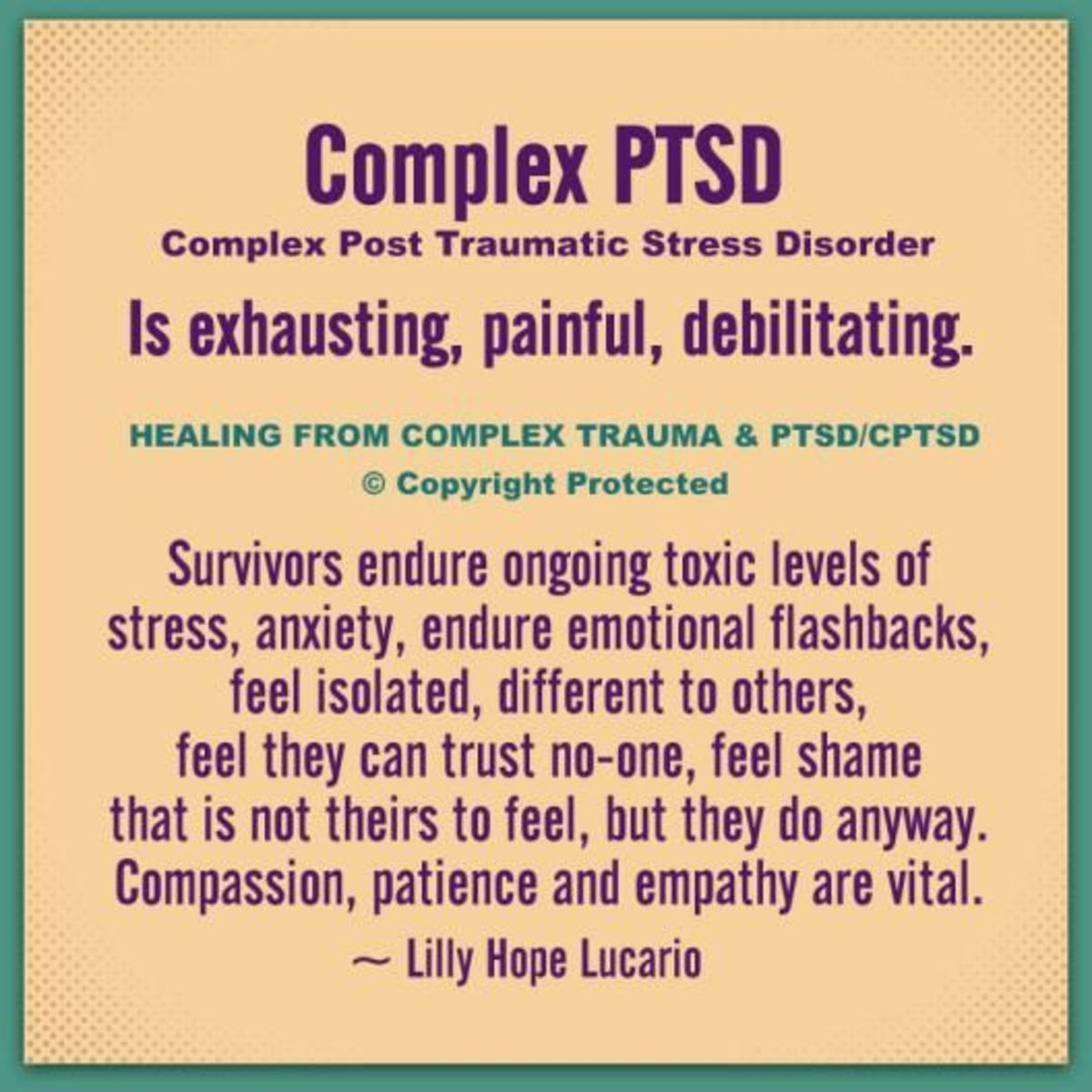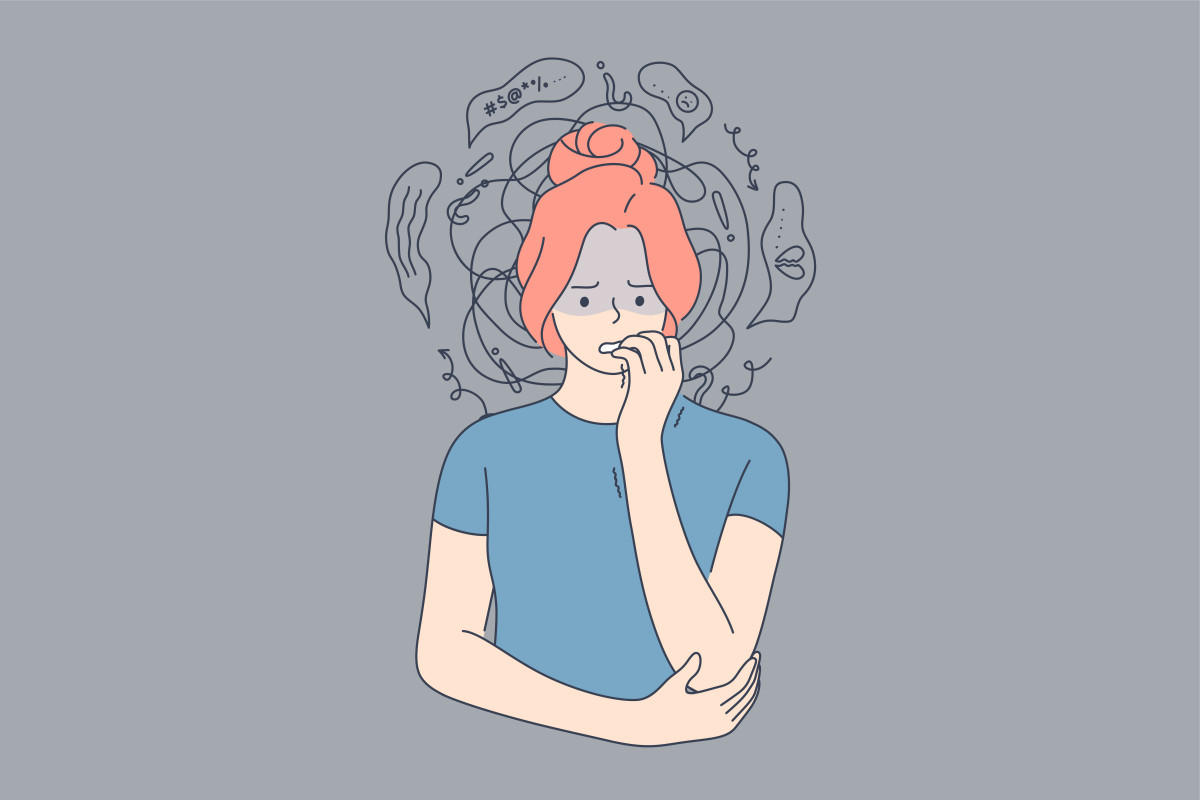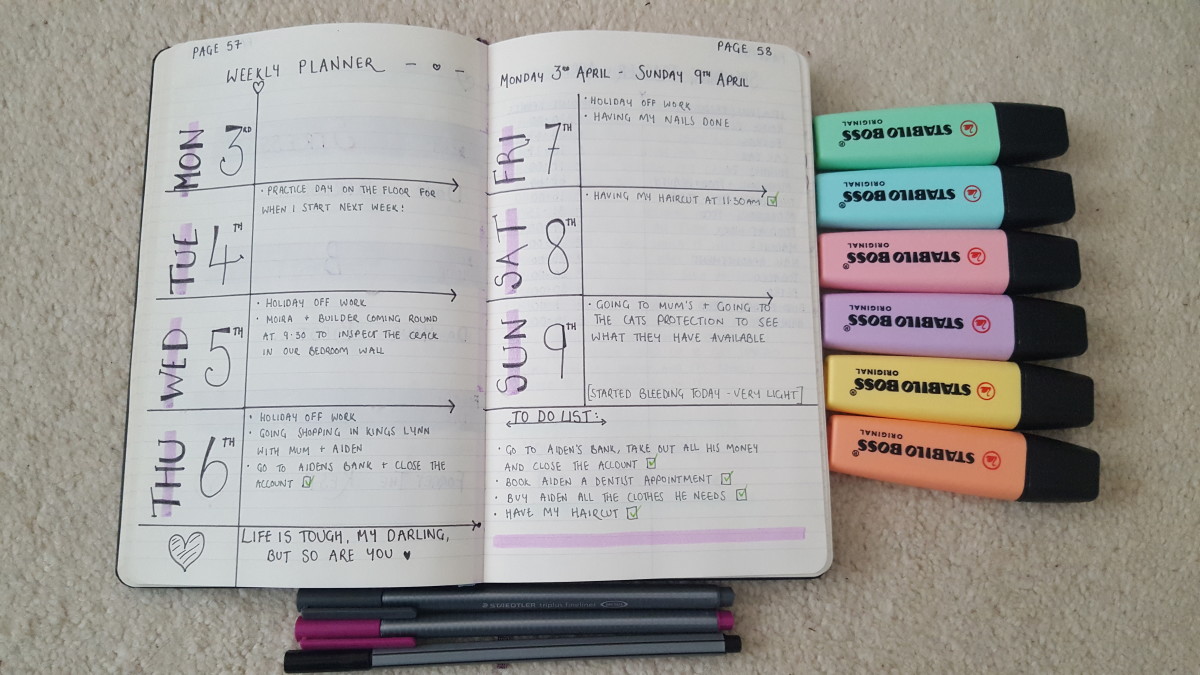- HubPages»
- Health»
- Mental Health»
- Anxiety Disorders
Overcoming Anxiety: The Master Key

You Don't Have to Suffer
Laying in bed at night, unable to sleep. Heart pounding, fearful thoughts, worries and regrets racing around in one's head. Feeling shaky, tense, short of breath -- feeling one will go crazy or die. It is so painful! Why does it happen?
Like other mammals, we are born with a "fight or flight" response that takes over
in situations of immediate danger. Automatically and reflexively, all
the systems of our body kick into high gear at those moments --
adrenaline pumping, breath changing, blood pressure rising, heartbeat
accelerating, etc. The emotion that accompanies these changes is
called fear, or anxiety.
Unlike animals, in humans the
fight-or-flight can be turned on by situations we imagine in our minds,
not just by real-life situations. When we worry anxiously about future
events, or mentally replay stressful past events, our body reacts as though it is actually happening right now. We turn on our
fight-or-flight response, with the accompanying tension, restlessness,
anxiety, and fear -- even though we are sitting safely in a quiet
room.
Some people, because of the temperament they were born
with, or because of past traumas, are more reactive than average to
perceived threats. If you are
hyper-reactive to stressful and fear-inducing thoughts or situations,
then your challenge is greater than average. However, the procedure
for all people, whether average or hyper-reactive, is to realize that
feelings and sensations are nothing more than feelings and sensations,
and thoughts are nothing more than thoughts.
You Don't Have to Believe All of Your Thoughts
Just because a
thought comes into our mind does not mean the thought is true. Just
because a feeling arises in our body does not mean the feeling is
accurate to the situation.
It is not enough to know this
intellectually, it has to be practiced until it becomes second-nature.
This is one of the benefits of meditation. We sit in meditation and we
may have various thoughts -- "I should be doing something else," "This
isn't working," "How much time has passed," "That sound is annoying
me," "I'm bored." If we believe these thoughts and keep elaborating
upon them, or if we fight them and try to push them out of our head
(which is really just another form of believing them), then our
meditation becomes about restlessness and struggle. When we gently
move most our attention from these thoughts to the breath, without
struggle, the thoughts eventually lose their charge and we are
meditating on our breath and feeling peaceful.
If you are a
person with a lot of anxiety, then there are probably certain types of
thoughts and fears and situations that have assumed a lot of power over
you. When these thoughts or situations arise, it is like a tsunami of
anxiety. Over and over we have had the same reactions to these
situations and they have formed a very deep imprint. Changing our
reaction to these habitual situations does not occur immediately.
Start Small, and Build Up
Suppose
you wanted to be able to lift 200 pounds and were not able to. You
would not start off immediately practicing with 200 pounds. You would
start with 100 pounds and gradually, over many weeks or months,
condition and build your muscles till you could lift 200.
Similarly,
we are unlikely to conquer our most serious and habitual fears
immediately. We must practice, practice, practice on our smaller
fears. If our highest degree of discomfort is a "10," we start by
tolerating and accepting feelings, thoughts, and situations that raise
our discomfort only to a "5."
Meditation is the laboratory,
training room, or gymnasium where we begin to work on this. Then we
start taking it out into real life.
Here's more information
about how anxiety works. (1.) Some people begin avoiding situations where they become anxious. As they practice avoidance, over time they may
find that more and more situations make them anxious, and they may
avoid more and more things, until their life becomes very narrow. (2.)
Some people try to avoid the feelings of anxiety by using substances
(alcohol, illegal drugs, or prescription drugs) which mask or deaden
the feelings of anxiety. At first this seems like a good solution, but
often the person becomes increasingly dependent on the substance, often
in greater amounts, and never learns to master the anxiety.
Embrace, Rather Than Avoid
Avoidance
as a primary strategy doesn't work. We may want to avoid the most
stressful and challenging situations, at least for now. But we want to
work on embracing the more manageable ones, so that working with the
situation becomes our habitual response, rather than avoidance becoming
our habit.
Fear can build on fear and get out of control. We
may think of scary things, and that can lead to an emotional upsurge in
our body. The heart starts beating rapidly and we get short of
breath. There is a knot in our stomach. We begin to be afraid we are
having a heart attack. The thought that we are dying feeds into our emotional panic, which intensifies the physical symptoms that make
us think we are dying. This is called a panic attack, and it is not
unusual for a person to end up going to the emergency room the first
time they have a panic attack, thinking they are having a heart attack.
This
proliferation of thoughts and feelings, in which one builds upon
another in a chain reaction, is what we learn to deconstruct in
meditation. Thoughts occur in meditation, but we watch them. When we
find one thought leading to another and another and another, we gently
return to the breath. We repeatedly cut, cut, cut the chain of thoughts
in a non-violent way. In this way, thoughts don't pile up and
elaborate themselves into a giant structures, with an accompanying
cloud of feelings that attach themselves to the thoughts.
What Is So Terrible About the Present Moment?
We are
continually returning to the here and now. Is anyone insulting me in
the here and now? Is anyone or anything threatening me in the here and
now? Perhaps I am worried about losing my job, or finding a job, or
paying bills, or a sick relative. I have to think about these things
enough to take appropriate action. But when these dominate my thoughts
and feelings to the point that I can't sleep, can't eat, can't
concentrate, can't relax, then I am no longer thinking about them in
order to plan my actions. I am now living with these things as though
they are present reality. I have to come back to my body, come back to
my breath, come back to my surroundings, and touch base with the
here-and-now, in which I am acutally safe and okay at this moment.
Generally
speaking, even when disaster strikes, the present moment is usually
less terrible than all of our imaginings about it were. Somehow we are
able to cope with the present moment when it is actually happening. It
may not be pleasant, but we are able to deal with it.
On a
smaller scale, when we feel restless in meditation, or have an itch, or
feel annoyance, when we sit with it, acknowlege it, and relax with it,
we are learning again and again that we can work with situations.
If
someone has special problems with anxiety, they could work with a
cognitive-behavioral therapist. But the general principle will be to
learn how to calm oneself, discover what thoughts trigger anxiety,
learn not to believe those thoughts, and then to gradually learn to
tolerate situations that cause anxiety, starting with the least
threatening and gradually building up.
Unfortunately there are no "instant" solutions that work in the long
run. Meditation combined with reading, reflecting, and practicing can
create progress. Take a moment during the day to stop, breathe, and
connect with the present -- just for a moment. What am I feeling?
What is going on right now? Just drop it all for a millisecond. Learn
to "cut" like this, gradually, gradually, over and over, and it will
become an ingrained ability.








